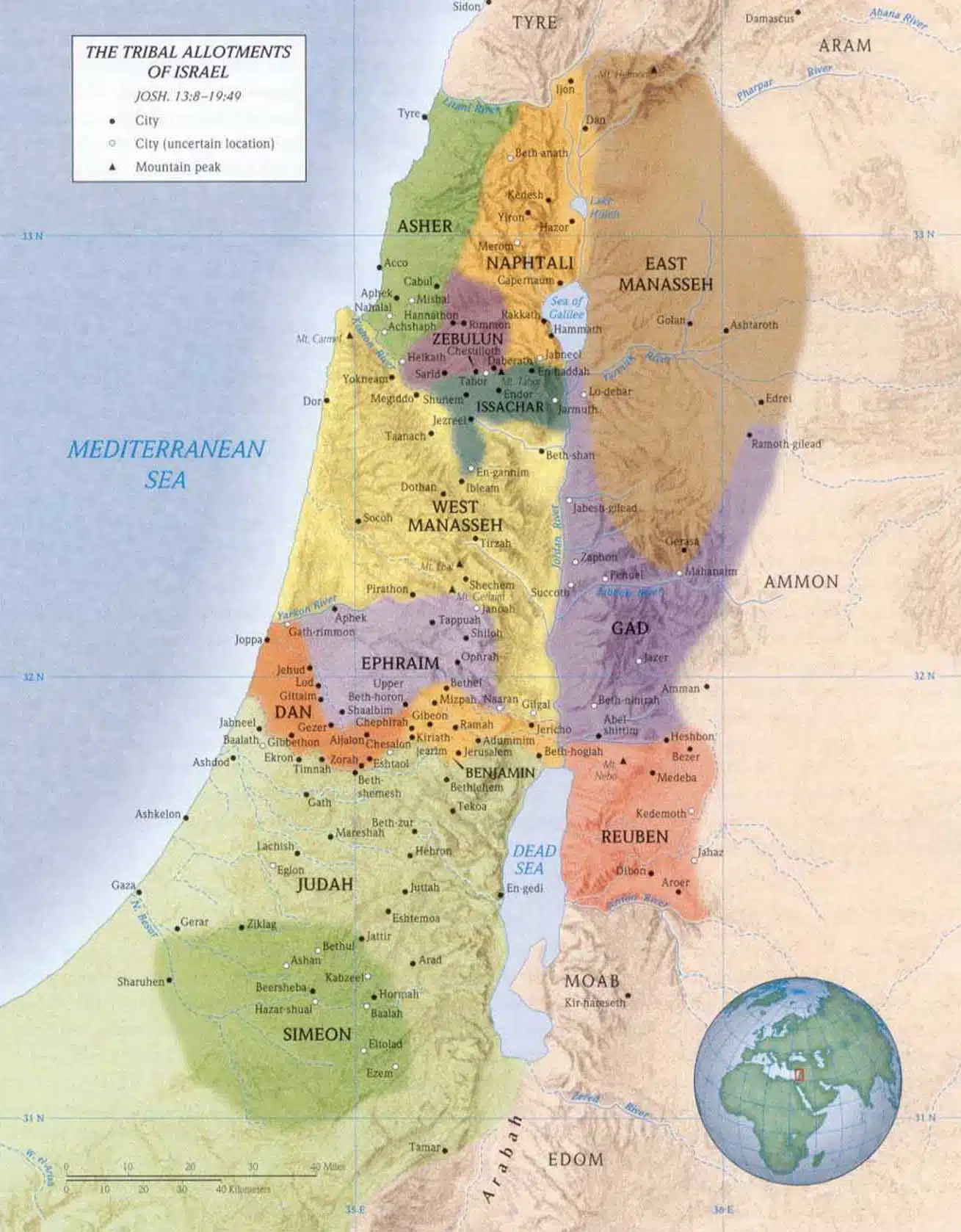Moses pronounces blessings on the tribe of Dan.
Moses continues the poem of blessing he pronounced upon Israel that He began in Deuteronomy 33:1. In this brief section, Moses pronounced blessings on the tribe of Dan (v. 22). Dan was the son of Jacob and Bilhah, Rachel’s maid. When Bilhah bore a son, Rachel said, ‘“God has vindicated [or ‘judged’] me, and has indeed heard my voice and has given me a son.’ Therefore she named him Dan” (Genesis 30:1–6), which means “judge.”
In Jacob’s blessing, Dan was pictured as “a serpent in the way, a horned snake in the path, that bites the horse’s heels, so that his rider falls backward” (Genesis 49:17). This picture of Dan as a snake that bites the horse, so that its rider falls is apparently an image of Dan as a stumbling block for Israel. This prophecy was fulfilled when Dan led the other tribes to engage in idolatry (Judges 18). Interestingly, Dan is omitted from the list of tribes that will be gathered at the end of the age, in Revelation 7:4-7. It could be that Dan is omitted there because at the end of the age there will be no more stumbling blocks. It could be that Simeon is omitted in this prediction of Israel taking the land because Jacob’s prophecy of him was that he would be scattered, and this is a prophecy of Israel being gathered (Genesis 49:5-7).
Also, the Danites were fierce military fighters when they decided to settle in the northernmost part of Israel. The territory of Dan was originally assigned to Dan in the south by the Philistine coast, but they chose to move to the north. When they arrived, they slaughtered all of the people that lived in the area they occupied (Judges 18:27-29).
Moses’ blessing here emphasized a similar idea of fierceness, picturing Dan as a lion’s whelp that leaps forth from Bashan. Comparing them to lions emphasized that the Danites proved to be both fierce and aggressive. Also, the reference to lions here was appropriate because the area that they settled in (north of the Sea of Galilee) was home to a large number of lions.
The word translated as whelp (Heb. “gur”) can also be translated as “cub” or “young lion” (Ezekiel 19:2; Nahum 2:12). The idea was that Dan was the offspring of a lion.
But Dan was not just any lion. He was regarded as one that leaps forth from Bashan. This means that Dan was aggressive and full of vigor. The region of Bashan was a rich and fertile land in what is now the Golan Heights, east of the Sea of Galilee. This was part of the land taken over by the Danites when they moved north (as discussed above— see map on insert) .
Biblical Text
22 Of Dan he said,
“Dan is a lion’s whelp,
That leaps forth from Bashan.”
Check out our other commentaries:
-
Daniel 2:44-45 meaning
After the fourth kingdom, God will set up His eternal kingdom....... -
Numbers 11:1-3 meaning
Sometime during the three-day journey described in chapter 10, the Israelites began to complain. The LORD heard it and became very angry, and He caused...... -
Deuteronomy 25:4 meaning
Moses’s concern for compassion moves to the treatment of domestic animals. He now commands Israel not to muzzle the ox while he is threshing....... -
Hebrews 1:1-2 meaning
The law and the prophets came to their peak in Christ. Christ is God’s Son and the heir of all things....... -
Hebrews 5:5-6 meaning
The Pauline Author points out that Jesus was called by God to be a priest; therefore, His priesthood is legitimate. ......




